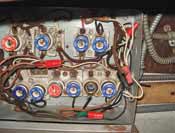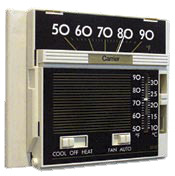- Publications:
- Newsletter:
- How-To Tutorials:
- Consumer Guides:
- Related:

Image by Robert Ubell
Publishers:
Accurate Building Inspectors ©
Division of Ubell Enterprises, Inc.
1860 Bath Avenue
Brooklyn, NY 11214-4616
voice – 718.265.8191
toll free voice – 800.640.8285
fax – 718.449.7190
Lawrence J. Ubell *
- President
Alvin Ubell **
- Founder, Vice President
Matthew Barnett *
- Senior Inspector
Estelle R. Ubell
- Sec. Treasurer
Jennifer S. Bleyer
- Editor-in-Chief
Contributors:
Adam Leitman Bailey, Esq.
Hon. Jules L. Sprodek, (RET)
Robert H. Wolff, Esq. of Rosenberg,
Minc, Falkoff
& Wolff, LLP
Ari Saltz, of GFI Mortgage Bankers, Inc.
Stanley Turkel, MHS, ISHC
Bertrum Herman, Esq.
Howard Kurtzberg, Esq.
Mitchell D. Kessler, Esq.
Sebastian M. D'Alessandro, RA
Terrence E. O'Neal, RA, AIA
* Licensed in: New York - New Jersey
** Licensed in: NJ
Contribute:
If there is a subject that you would like to see discussed or an article that you would like to contribute to be featured
in The Gotham City Inspector©, please forward your comments to:
Letters to the Editor
Media Notice: The publishers, grant reprint permission of all articles in the Gotham City Inspector© Newsletter, provided that appropriate written recognition is given to the authors and “The Gotham City Inspector©”. For online reprints, please also include an HTML link to The Gotham City Inspector© : www.accuratebuilding.com

The Gotham City Inspector©
Newsletter: Summer 2007, Vol.4, No.2

![]() Gotham City Inspector Newsletter
Gotham City Inspector Newsletter
Summer Headlines:
- • LIGHTS OUT?!
- • Lower Your Air-Conditioning Bill
- • The Trauma Of A Real Estate Closing
- • Product Warning - Check Your Fire Extinguisher
- • Grow A Healthy Green Lawn All Summer Long
- • What's The Matter With Ladders?
- • To Our Readers
Living In New York
LIGHTS OUT?! The Question Is Not ‘If’ But ‘When’
Power outages are a fact of life, especially when demand is high. If your power goes out, first reset the breakers or replace burned out fuses. If they are o.k., contact your electric company to report the problem. If neighbors are without power as well, turn your battery-operated radio to local stations for updates; turn out light switches and unplug appliances to prevent damage to them when service is restored; keep refrigerator and freezer doors closed, and do not go near downed power lines. For more information on being prepared for a power outage, go to


Cool, Man Cool: Lower Your Air-Conditioning Bill
There's still a little bit of summer left, and while your home feels cool, your wallet might feel like it's getting lighter and lighter. But, it's never too late to save money by saving energy.

- Tolerate higher temperatures. For every degree you raise the temperature in an air conditioned room, you'll save 2 to 3 percent of your cooling costs.
- Service your air conditioner. All air conditioners should be serviced at least once a year. Motors should be lubricated, if required, coils cleaned and filters checked and changed.
- Shut it off! If you're leaving the house, or temporarily leaving an air conditioned room, save yourself some dollars by turning off the air conditioner.
- When you go shopping for an air conditioner, check the energy efficiency rating. Look for products with an Energy Star rating or see www.energystar.gov
Attorney Corner
Getting Through The Trauma Of A Real Estate Closing
Interview with Lynn Sculley, Esq. by Jennifer S. Bleyer

One of the most exhilarating experiences that many people undertake is closing on an apartment or a house. It can also be one of the most confusing experiences, sitting in a room with a group of lawyers and others talking very fast, passing documents around and asking you to sign a pile of checks. To the uninitiated it can be downright traumatizing. In this issue, Gotham City Inspector spoke with Lynn Sculley, a real estate attorney who as attended hundreds of closings.
What is a closing? The closing is where all the parties get together — the seller, buyer, their respective attorneys, the title company and the bank attorney, if there's financing, to transfer the property from seller to buyer. At closing you have to bring photo ID, your checkbook and certified checks. The closing is often at the bank attorney's office, and it's where the deed is given.
What do buyers ned to do before the closing? They need to do a pre-closing walkthrough of the property. The walkthrough is to make sure that the property being sold is in the same condition as promised in the contract and that there have been no changes. For the walkthrough, I always advise my clients to bring a light bulb so there's no argument at the closing of whether the electricity was disconnected. I also advise them to bring a flashlight to look in closets and cabinets to see if there's any leaking and I tell them to run all the appliances, turn on all the lights and make sure all the outlets work. Often it takes awhile to do this pre-closing walk-through, but I always tell clients, ‘Buyer beware.’ Once you sign over the money, you can't say, 'Oh, the roof is leaking.'
What about closing costs? You can get estimates well before closing on what closing costs will be and what the balance of the price will be, but you really don't know your numbers until the day before or morning of the closing. You have to have certified funds for everything. The title bill, if you're buying real property, is the title search. It also includes the mortgage tax, the fees for doing the search, the insurance premiums for the search and, if the property is over a million dollars, mansion tax. The bank fees are automatically deducted from the mortgage. The seller's attorney directs how they want the money.
What about insurance? Each bank has its own requirements. Several days before closing, the bank is going to want to see evidence of insurance and a paid receipt.
Are there any other clarified costs at the closing? There's what's called adjustments at closing between buyer and seller and you don't know those until the closing date. For instance, if there's oil as fuel, than the buyer has to pay the seller for the oil that remains in the tank.
What are exclusions? The contract will state what is included and what is not included in the sale. This has to do with personal property. Things like an air-conditioner, a ceiling fan, possibly an appliance or light fixture. It could be that a real estate broker will show a house and say, ‘The dining room chandelier is not included in the sale. The seller's taking that and will replace it with a standard builder's fixture.’
What are contract contingencies? It depends on the contract and what you're buying. Generally, if you're buying a house, there are a bunch of them. One is that the certificate of occupancy is accurate. For instance, if a seller is selling a three-family house, there has to be a C. of O. from the buildings department or buildings department verification that it is a three-family house and not a onefamily that was illegally converted to a three-family. The other is a mortgage contingency so that if the buyer doesn't get the financing, they can cancel the deal, except they have to proceed with due diligence to get it. A fair number of times the deal is negotiated so there is no mortgage contingency, so the buyer has to be pretty sure that he'll get a mortgage, or else he'll lose his down payment.
How long does is take to close a sale? The parties can negotiate on a closing date. You may negotiate a long closing date — say you're going into contract in January and the seller says his kids are in school and they're not moving until June. Then you have a long closing date. But a standard closing date is 60 to 75 days. But I've also had 30-day closings.
What hapens if a buyer is struck with pre-closing anxiety? There's nothing that protects them. Once you sign a contract and the title search is fine, short of there being a fire or flood, you're locked in. There has been some case law where, if there have been latent defects, there could be a lawsuit. But that's a whole other story.
Lynn Sculley is a Brooklyn-based attorney who specializes in real estate. She can be reached at (718) 499-6481 or sculleyesq@nyc.rr.com.
Energy Wise

Product Warning - Check Your Fire Extinguisher
In February, Underwriters Laboratories issued an announcement that fire extinguishers manufactured by International Technology Services had not been evaluated for safety by UL and bear a counterfeit UL mark. The product, called a 2-B-C fire extinguisher, is approximately 8-9″ inches tall and approximately 2 ¾″ in diameter, with a black head attachment and squeeze trigger. UL recommends that users stop using the product immediately and return it to the place of purchase. Consumers can call International Technology Services at (732) 635-0230.
Books
Grow A Healthy Green Lawn All Summer Long
From Recipes for Home Repair
All summer and well into fall, most property owners with a lawn want their patch of green to look as bright and lush as their neighbor's. Here are some tips to help you cultivate a healthy green lawn.

- Test your soil. You can test the soil yourself using kits, sold in garden supply stores, or use the soil-testing services of your County Extension Service or a local college's agricultural extension division and here in Brooklyn at the Brooklyn Botanic Gardens.
- Prepare your soil. Turn over, rake and break up the soil as deeply as possible. Most lawn care and seed firms recommend raking three or four inches deep if you're upgrading, or 12″ deep is you're sodding or seeding.
- Apply fertilizer in the right combination and amount. Select fertilizer based on the type of grass, soil conditions and the climate. In general, nitrogen is the most important fertilizer for established lawns. Special and sparing use should be made of fast-release fertilizers, since they have a tendency to “burn” grass blades and cause discoloration.
- Water adequately. Because soil conditions, drainage, climate and frequency of rain vary greatly, there is no absolute rule, but experts say your best bet is to water thoroughly until the lawn is moist to a depth of six to eight inches. Water lawn again when soil begins to dry out.
- Mow regularly and at the right height. In most instances, lawn height should be kept between 2″ and 2 ½ inches. But keep in mind that you should never cut off more than half the height of the blades of grass. Mowing about once a week during the growing season helps promote grass growth.
- Use insect and weed controls when necessary, being careful not to misdiagnose another problem, such as overwatering or misuse of fertilizers, as evidence of insect infestation. For more information on maintaining a gorgeous, green lawn, go to Lawn Care Guide.
Free! Download the Tutorials:
www.accuratebuilding.com/publications/recipes/
Inspector's Diary

What's The Matter With Ladders?
Each year, 30,000 people are injured by falls involving ladders. To avoid a dangerous fall, always MAKE SURE YOU SELECT THE RIGHT LADDER for the job. (Electric work: wooden or fiberglass ladders only.)
- Be sure it's long enough to work from comfortable and sturdy enough to handle repeated use.
- Inspect the ladder before you use it for loose or damaged rungs, steps, rails or braces, or loose screws, bolts, hinges and other hardware.
- Set up the ladder with care, fully opened with spreaders locked.
- Straight ladders should be one foot away from the wall for every four feet or height to the point of support.
- Climb and descend ladders cautiously, facing it and holding on with both hands.
- Don't work out-doors on windy days!
- Tying down extension ladders to prevent slipping or side sliding is a recommended safety technique.
What goes up should always come down … the safe way!
To Our Readers
Lazy Days of Summer
Like you, we here at the Gotham City Inspector have been enjoying all the virtues of summer — lazy days at the beach, cool weekends in the mountains, fresh burgers off the grill and ice cold drinks in hand. Although the season is quickly waning and fall is just around the corner, there is a bit of summer left and with it come a few reminders about how to weather the weather.
Air conditioners are giant energy drainers, and that means they're giant money drainers, too. It's never too late to make your air conditioning use more efficient. We provide several ideas on how to do so. Remember, your wallet will love you for it.
Another great summer pastime is maintaining a healthy lawn. While not everyone has a private lawn to tend, those who do know that there are few things as pleasurable as pulling up to your home and seeing your own verdant, well-manicured patch of emerald green. Lawn care doesn't have to break your back, though. Follow a few easy steps and you'll come out looking like a natural green thumb.
Lastly, this issue of Gotham City Inspector features an interview with Lynn Sculley, a real estate attorney who has had the pleasure of accompanying hundreds upon hundreds of buyers and sellers to that most hallowed real estate ritual: the closing. As both a thrilling and nervewracking experience, Sculley shared with us the basics of getting to and through the closing, offering information that both novice and experienced buyers may benefit from.
Thank you for your continued support, and enjoy the rest of your summer!
“Helpful ideas at your finger tips!”
If you would like to receive the The Gotham City Inspector© newsletter, please email
your request and include your name, business name, business telephone and address.
E-mail: info@accuratebuilding.nyc
Copyright Ubell Enterprises, Inc. 2007 ©
Accurate Building Inspectors provides home inspection services throughout New York, NYC, Bronx, Brooklyn, Harlem, Long Island, Queens, Staten Island & New Jersey (NJ)





